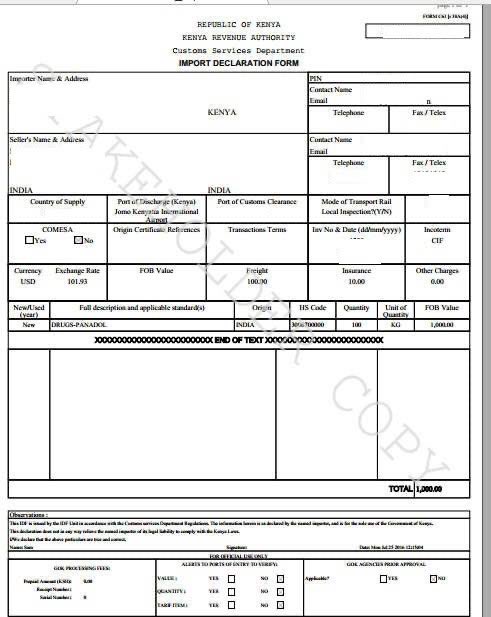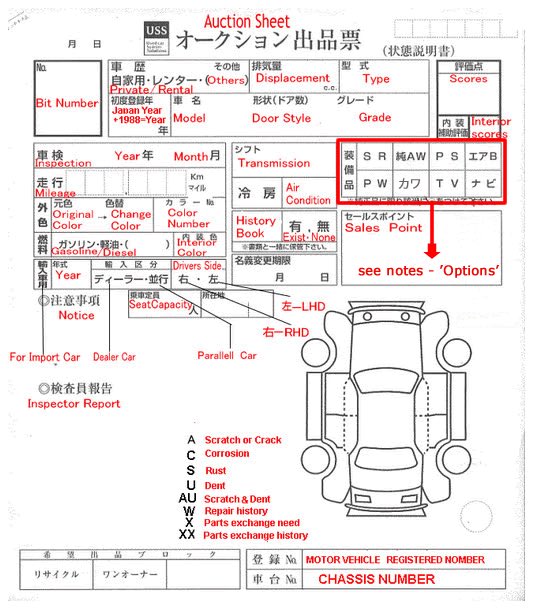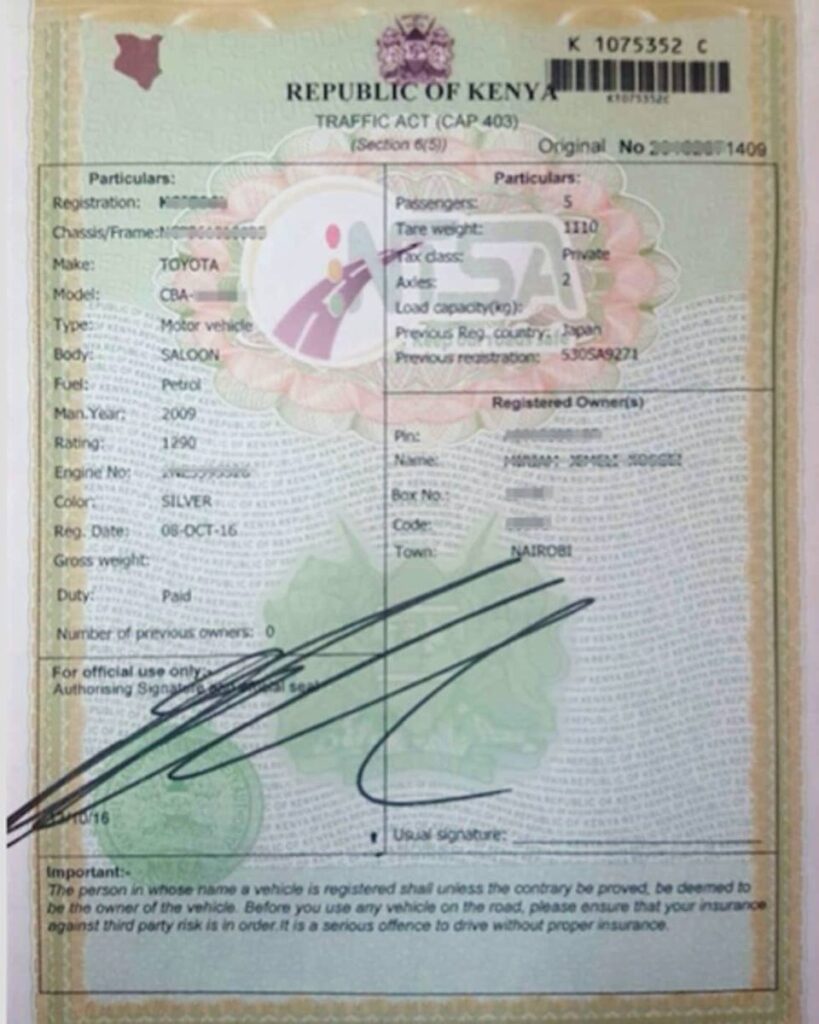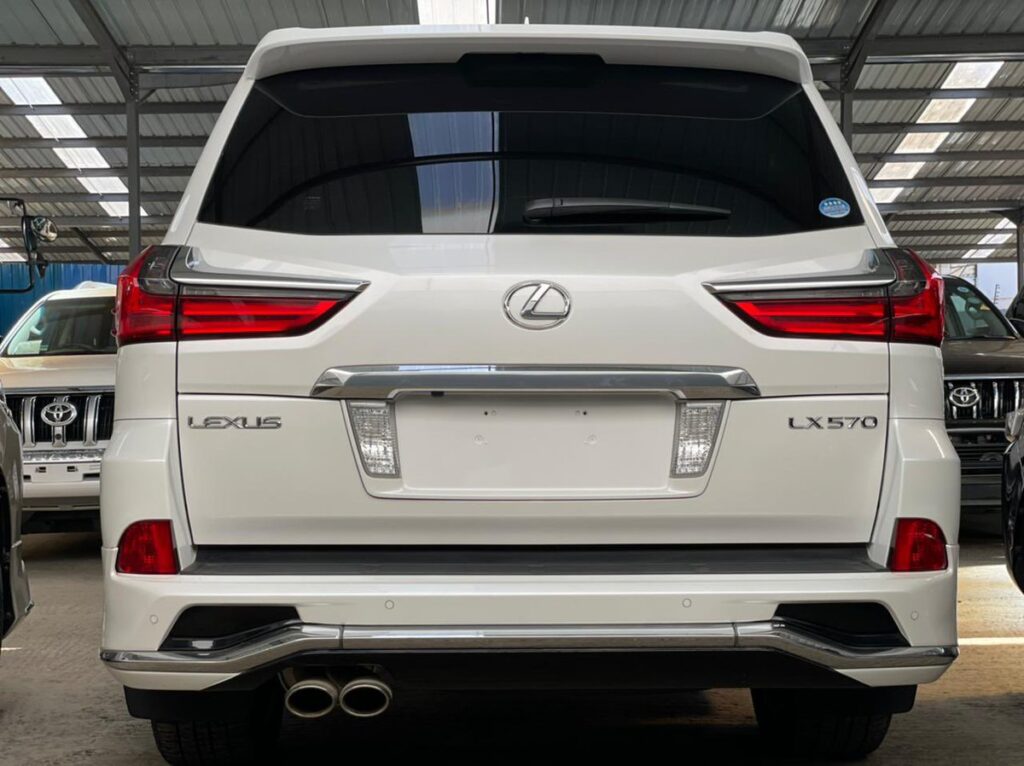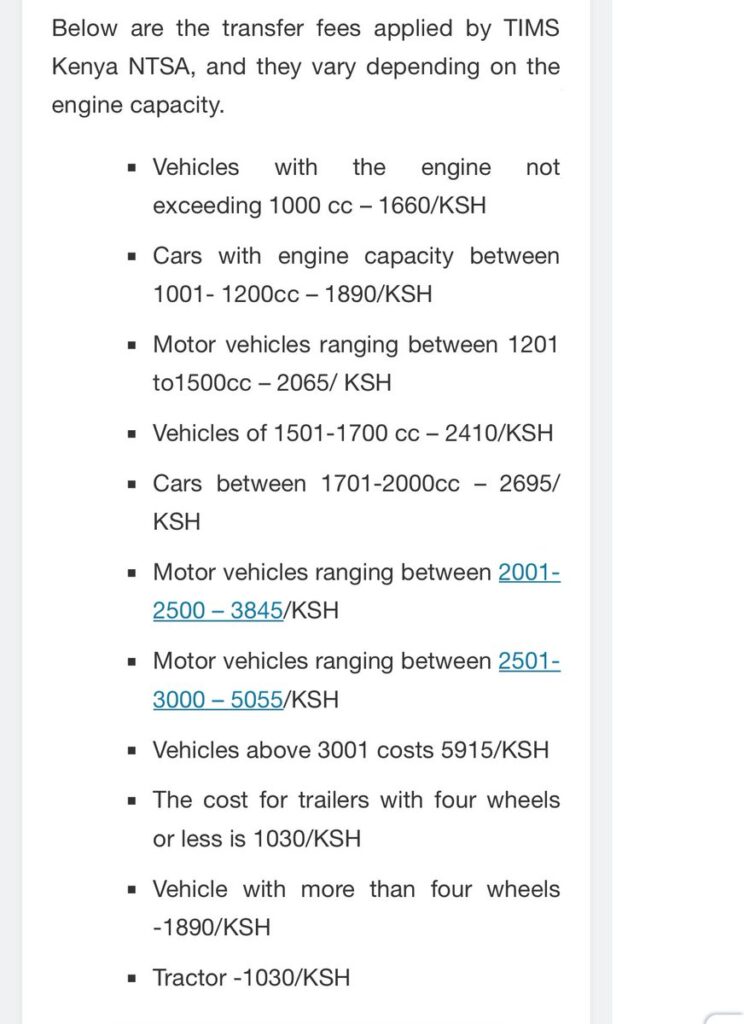THIS IS FOR ALL PROSPECTIVE CAR BUYERS IN KENYA. Buying a car isn’t easy. People save for a very long time, and others take loans to get their cars. However, this industry has many loopholes that put the customer at the Mercy of the car dealer.
As a car buyer, there are RED FLAGS that you should take note of before transacting with any dealer. I beseech you to subdue the excitement of getting a new car and concentrate on doing THOROUGH due diligence and documents verification of the said unit. This is a CRUCIAL process that many Kenyans skip while buying their cars. To first-time car buyers, you should take this process seriously. DON’T IGNORE. On document verification and assessment, after assessing the car, the BUYER MUST COMPEL the dealer to provide them with the following documents:
Documents Required:
- Certificate of Inspection
A certificate of inspection is issued by the Inspecting organization appointed by KEBS in Japan, usually QISJ or EAA. It is a certificate issued on the car that shows you the mileage (Odometer reading at the time of Inspection), Year of registration, and other details of the car as indicated below. If a dealer is hesitant to show you this document, kindly note that this is a very BIG RED FLAG. Why would a dealer refuse to show you this document? 1. If they have changed the mileage/odometer reading of the car. INSIST!
- Import Declaration Form
This particular document is issued by KRA to show that the import declaration fee on the car has been paid. You may also ask the dealer to give you a Bill of Entry document. All these will help you certify that the unit you are about to purchase has been fully declared to KRA and duty paid. Insist on seeing these documents. If the dealer hesitates, the chances are likely that they have unit through some underhand means and the said duties haven’t been paid. YES, IT IS POSSIBLE.
- Auction Sheet
The auction sheet will tell you so many things about the car. Though this may be Greek to first time buyers, from the auction sheet, you are able to see if any part of the vehicle has been replaced, Engine changed, and the overall Grade of the car. A grade of 4 + is good.
- The Logbook
This is where many buyers are short-changed. A logbook is the instrument of ownership of the car. Any car registered by KRA/NTSA must have a logbook in the name of the dealer or the person selling it. DO NOT ACCEPT politics when it comes to this document.
From the logbook, you will be able to see the above information displayed. Cross check and to avoid being issued or shown the fake logbook; please do a vehicle search at NTSA. Ensure you confirm the details of the car as captured by the NTSA. Do the search at https://timsvirl.ntsa.go.ke/#!/login
A POINT TO NOTE: Once the car is in the showroom and has been registered (i.e., it has a number like KDC 667K, the logbook should be with the dealer. However, there is an exception on cars that haven’t been registered and are in the showroom (Against the KRA/NTSA regulations). They may not have the logbook. So the only time you should not see the logbook is when you are buying a car in the showroom, and the car HAS NOT BEEN REGISTERED (doesn’t have the number yet). Once the number is launched in the NTSA portal, the logbook will be ready in a week or so. A car like the one below may not have been registered (Though this is against the law). But many guys who buy high-end cars prefer special plates and new ones. So any story apart from that is POLITICAL. The logbook is either there, or the car has a case, and the logbook has been withheld.
As the buyer, kindly note that you should leave the showroom with your logbook. But usually, this doesn’t happen. If you are buying a car in cash without any balance, COMPEL THE DEALER to not only give you the physical logbook but also to transfer the logbook to your name in the NTSA portal. This is usually different when you buy a car on loan (MKOPO-LIPA POLE POLE or HIRE PURCHASE). In this manner, the dealer will remain with the logbook, and you will only rely on the sales agreement to prove ownership to the legal officers. So INSIST on the transfer of when you are buying a car on CASH. There is no other reason why the dealer cannot do the transfer. A minute, “The system is having an issue is purely business politics” INSIST. Reasons, why some dealers may refuse to do the transfer of logbook, is when and not limited to:
- The car you are buying was already sold to someone else who has the logbook, and they cannot access the logbook.
- If the car you are buying was stolen from someone else.
- If the dealer is crooked and they may want to short-change you to sell the car again.
- If they want you to pay some extra cash just to transfer the logbook. Kindly note that the dealer should not charge you for transferring the logbook; one should pay NTSA; this is an area that many buyers don’t understand. These are the charges for transferring the logbook to Kenya.
The charges depend on the CC (Engine capacity of the car you are buying.) So be informed accordingly. Creating a TIMS account is something a buyer can do on the phone or at a cyber. It doesn’t cost you even 30 minutes and more than Ksh.60 bob. So once you have your TIMS account ready, let the dealer do the transfer, and you will accept the transfer in the system from your TIMS account. After doing this, pick the logbook of the car in the name of the dealer and go with it. You will take this logbook to NTSA for cancellation when you are collecting your new logbook. IMPORTANT.
Don’t let the EXCITEMENT of getting a new car overshadow your mind. Check the documents. Get a legit car. If you fall in love with a car, take some time to step back to ensure it’s the right car for you according to your needs. In a nutshell, don’t allow your heart to rule your head because it will cost you. Buying a car should not be a decision you come to at the spur of the moment. Allow yourself a few days to think about it. It’s also a good idea to shop around and compare estimates from different vendors. Don’t make the error of buying a car that “looks good”, even if it “feels wonderful” when you test drive it. Take a mechanic friend with you or have it inspected by a professional unless you have excellent car experience.
Other important considerations when buying the car:
- Confirm the real owner of the car through the NTSA online system for checking the same. Countercheck the Logbook details with the details shown in the NTSA system and ensure they are the same. Link for the NTSA: https://timsvirl.ntsa.go.ke/#!/login
- Have a mechanic confirm the car condition. You may also need a car electrician to confirm the electrical and electronics section of the car. Ensure the car is in good condition and has all the accessories and tools such as the Car Jack, Jack Adjuster, Spanner, and Spare Wheel. Get your mechanic (or a friend) to countercheck the engine and chassis number against the logbook details. While at it, have him check oil changes, tyre condition, and previous repairs.
Here is a checklist that you can use:
- Confirm the real car mileage through the online system and counter check with what’s on the car mileage dashboard. Check the Car Mileage here: https://www.qisjp.co.uk/verify-mileage.php
The lower the mileage, the better the car. Mileage below 110,000Km is good enough.
- Countercheck the engine serial number and the chassis number and ensure they are the same as the NTSA and logbook records. You have to check these physically from the car.
- Confirm the payment details. Ensure you pay the money to the owner of the car. Check the bank account details of the owner. Do not send the money to the broker or agent but to the real owners of the car—owner, as confirmed in point 1 above. Do not pay in CASH. Pay through bank transfer or other means where it’s possible to track the payment details. Ensure you get an invoice and a payment receipt.
Once more, avoid paying cash for your car; this will reduce the chances of getting robbed or of transacting with fake money in the case of sellers. Instead, ask them to deposit the money in the bank and bring the receipt, which you can confirm before you part with your car.
Do not pay a “Commitment fee” to anyone. Do not let the seller pressure you into buying the car. Car salespeople are known for being pushy and saying or doing everything to close a sale. It’s crucial to avoid being pushed into purchasing before you’re ready or have gone over all of your options. If you’re a first-time customer, a salesperson will be able to tell, and they won’t be reluctant to utilize that information to their advantage.
- There shall be a sales agreement, which must be signed by you, a witness and the seller.
- The original logbook must be transferred to you immediately, and apply for a new logbook. The car seller to facilitate that process. Also, the car ownership transfer should be initiated immediately through the NTSA portal.
- If a new driver, do not forget to carry your driving license.
- If a new driver, get the L signs to be put on the back and front screens of the car.
- Buy the car insurance as well at once. If not possible, get the insurance sticker as a remedy as you plan to buy insurance.
- Service the car immediately after buying it.
Other considerations when buying a car:
- Is it hybrid or non-hybrid?
- Is it a 2WD or 4WD?
- Auto or Manual?
More tips here: Tips For First Time Car Buyers In Kenya
You can get a detailed checklist that you can print and use when buying the car by going to the link: https://www.eeducationgroup.com/product/how-to-buy-a-used-car-in-kenya-a-checklist-and-a-guide/
If you are a new driver, you will also get a learner’s guidebook that may be useful. Click the link above.
References:
What to look out for when buying a car off the street:
https://nation.africa/kenya/life-and-style/money/what-to-look-out-for-when-buying-a-car-off-the-street-865572?view=htmlamp
Common mistakes first-time car buyers make:
https://www.pulselive.co.ke/business/common-mistakes-first-time-car-buyers-make-pulse-contributors-opinion/gxsj01q
PROCESS OF BUYING A CAR IN KENYA: Foreign Used


